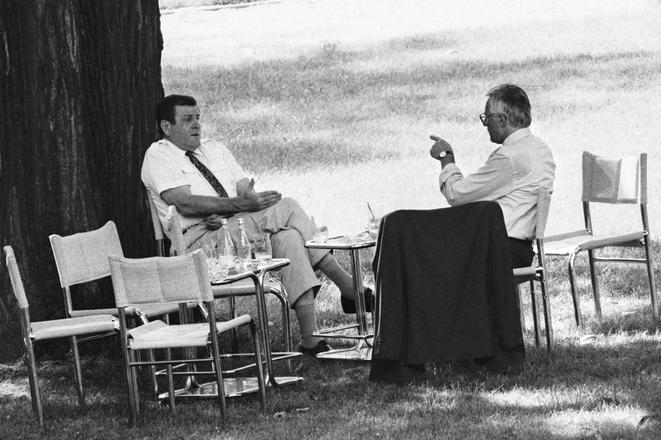Nearly 30 years after Slovakia gained independence, its citizens are increasingly hesitant about whether it was right to create their own country.
Slovakia became an independent republic on January 1, 1993, following the splitting of Czechoslovakia. The split was preceded by a decision of leaders Czech PM Václav Klaus and Slovak PM Vladimír Mečiar on the two nations parting ways.
A Focus poll for the Institute for Public Affairs (IVO), carried out in August 2022, has revealed that only 43 per cent of Slovak citizens see Slovak independence in a positive light, while 30 per cent hold a positive-negative view, and 20 per cent consider the decision to create an independent Slovakia to have been a wrong move.
The Focus polling agency surveyed 1,009 respondents.
The older, the more critical
IVO's sociologist Zora Bútorová explains that people's perception has changed over the years, but the recent finding is the most critical since 2012, when 60 per cent of Slovak citizens believed that it had been a good decision to establish Slovakia.
The figure dropped to 51 per cent in 2017 and increased to 64 per cent in 2019.
The sociologist says that the older Slovakia gets, the more likely that people view their country's independence through the lens of a current political situation.
"And most citizens view it today as exceptionally critical, even crisis-like," Bútorová asserts.
According to experts, people's age plays an important role regarding how people see an independent Slovakia. The older people are, the more critical.
A case in point: out of people who were 18 years old or over at the time of Slovakia's formation, only 37 per cent regard the country's independence as a positive step today.
Divided over Czechoslovakia's split
As for the splitting of the Czech and Slovak Federal Republic, only 35 per cent of Slovak citizens see it as a relatively good decision. Thirty-one per cent are indecisive and 27 per cent assess the split negatively.
The perception of this historic move is today seen more critically compared to when Slovakia and the Czech Republic marked their 20th and 25th anniversaries.



 Slovak PM Vladimír Mečiar (left) and Czech PM Václav Klaus hold a talk in Brno, Czech Republic, on August 26, 1992. (source: TASR - Peter Brenkus)
Slovak PM Vladimír Mečiar (left) and Czech PM Václav Klaus hold a talk in Brno, Czech Republic, on August 26, 1992. (source: TASR - Peter Brenkus)